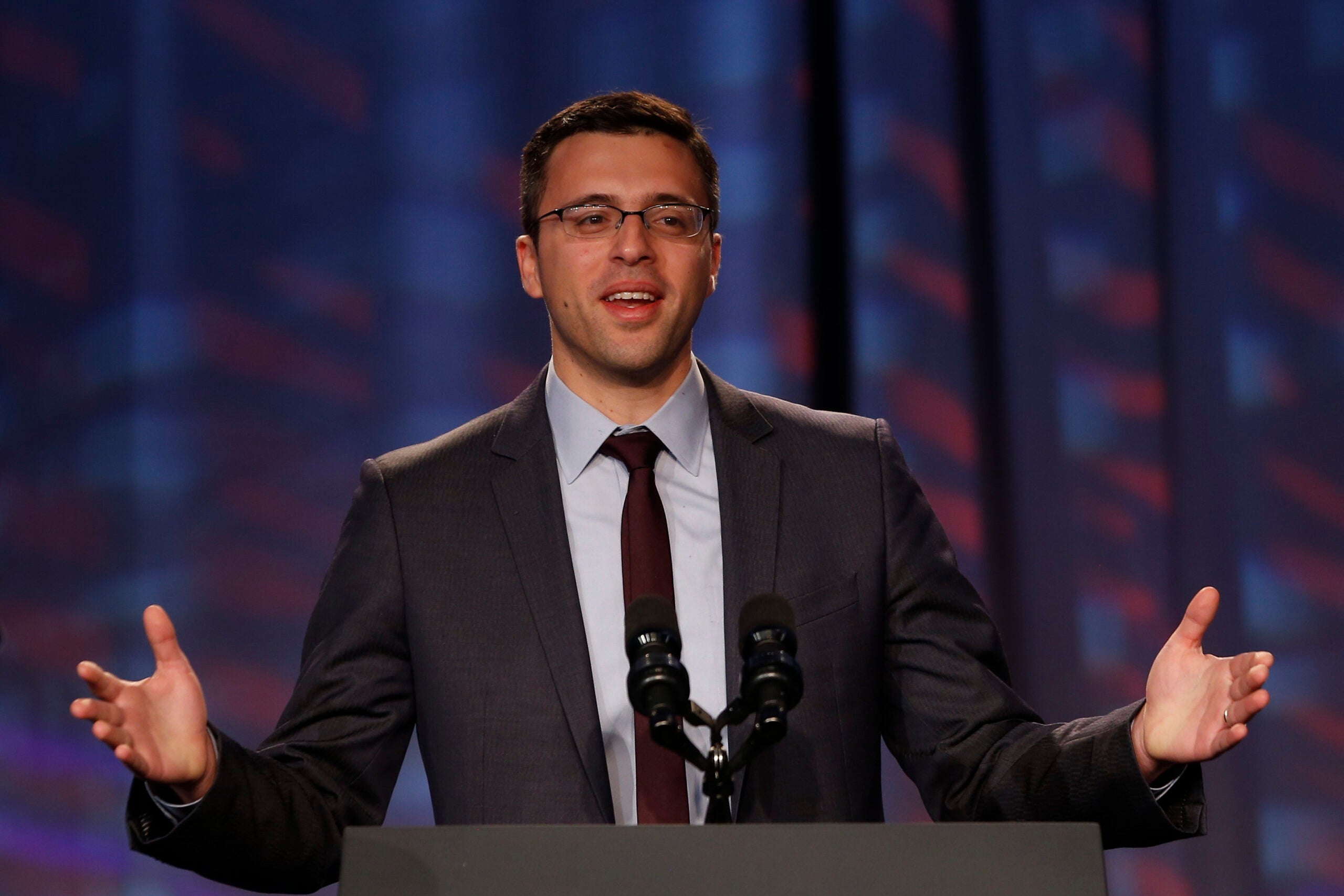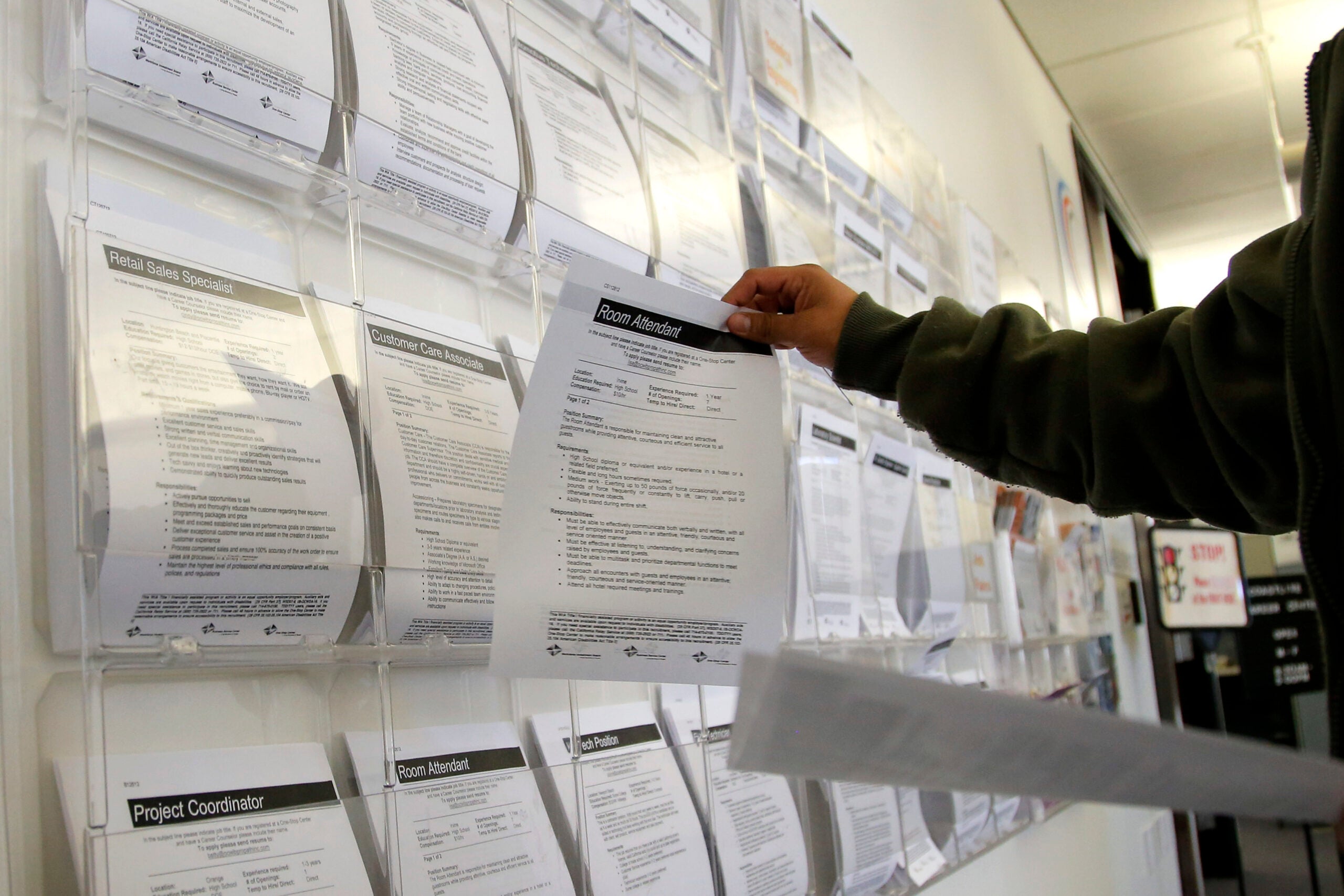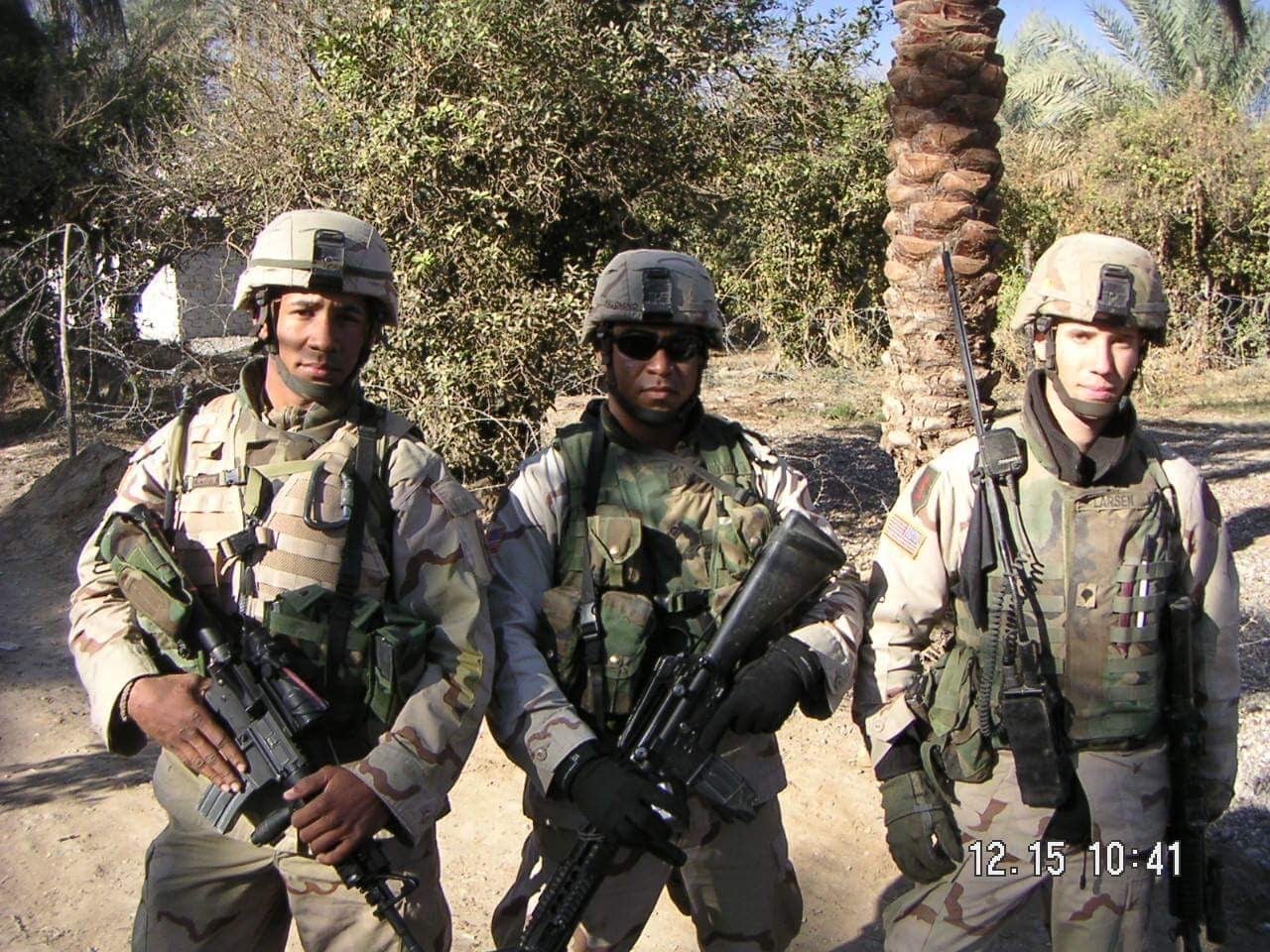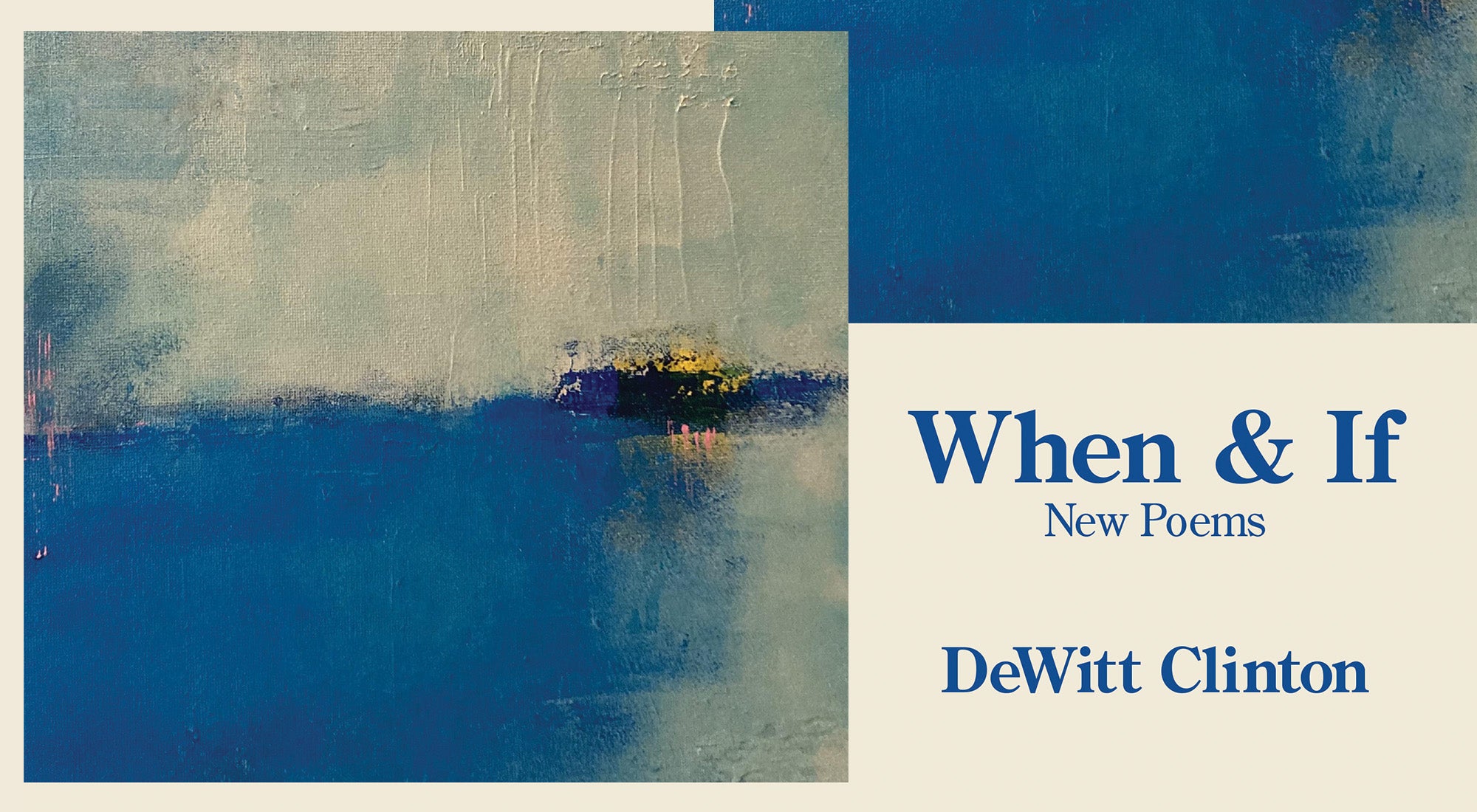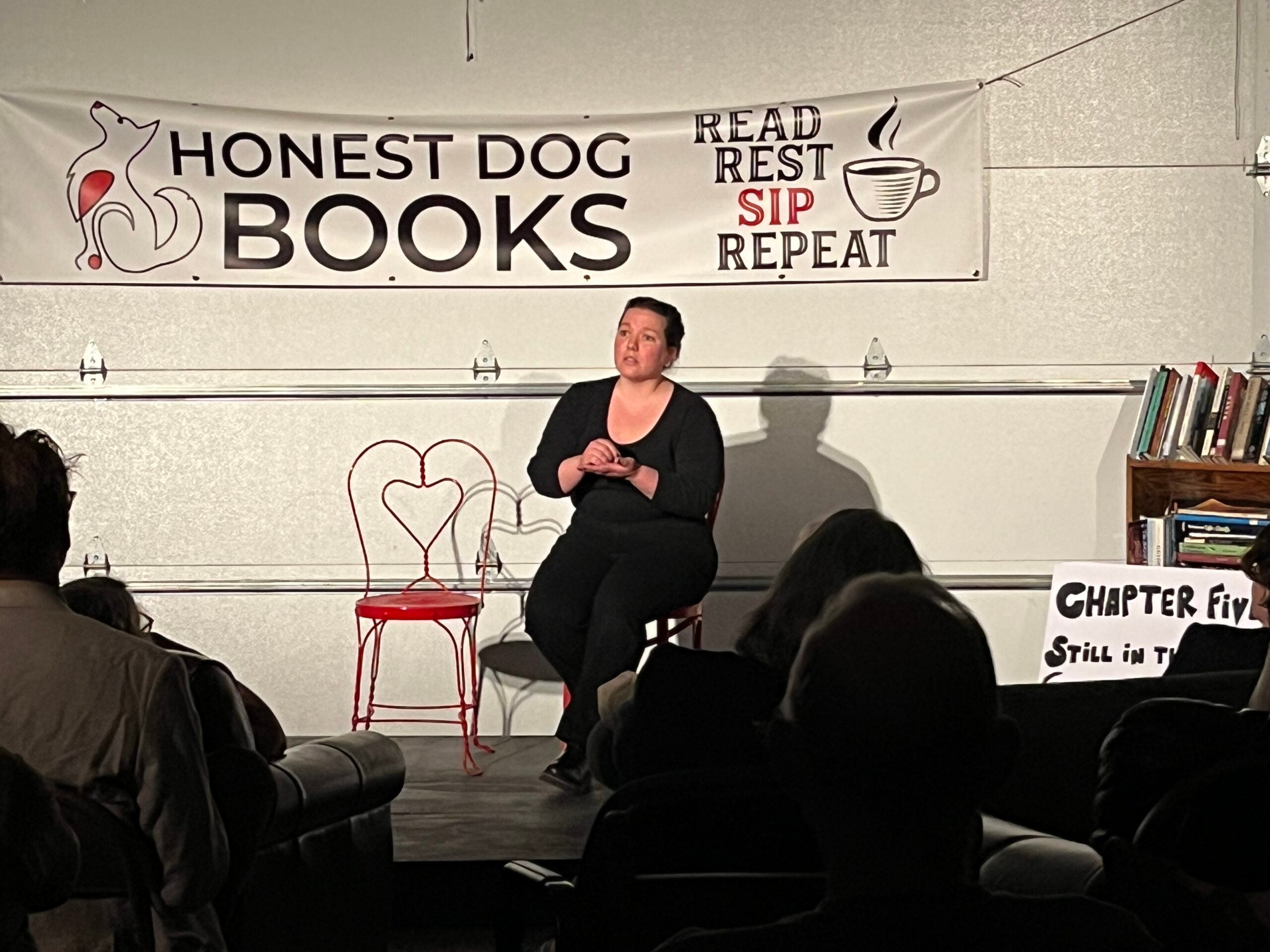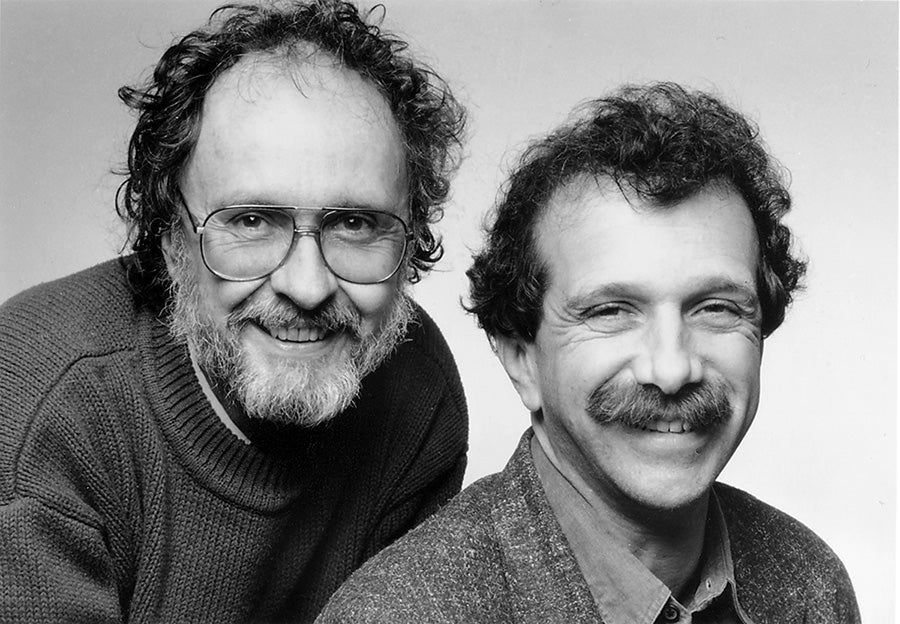These days, there are so many pundits and commentators on TV and other media channels that it’s hard for any serious journalist to break through this cacophony of chatter. But Ezra Klein has, and he’s won a devoted following with his popular podcast “The Ezra Klein Show.”
A former columnist at The Washington Post and co-founder of Vox Media, he’s also a columnist at The New York Times. And with this dual platform — both podcaster and columnist at the one of the world’s most prominent media outlets — he commands a huge audience with his wide-ranging commentary on everything from the war in Gaza to the latest breakthroughs in artificial intelligence.
“I believe more in transparency than in what has at times been called objectivity,” Klein told “To The Best Of Our Knowledge “during a recent visit to Wisconsin. “I’m not objective. I don’t really believe anybody’s objective. What I am is transparent, so you can kind of figure out where you diverge or where you converge with me.”
News with a little more humanity
WPR’s “Wisconsin Today” newsletter keeps you connected to the state you love without feeling overwhelmed. No paywall. No agenda. No corporate filter.
Klein was in Madison to speak to the University of Wisconsin-Madison’s La Follette School of Public Affairs. He talked with Steve Paulson about his work and how journalists can respond to the rapidly changing media landscape.
This interview has been edited for length and clarity.
Steve Paulson: These days, the news is unrelentingly grim. Sometimes, I open The New York Times in the morning and after half an hour, it feels like the world is falling apart. Some people talk about needing to go on a news fast just for the sake of their mental health. Does this kind of criticism of journalism and the media resonate with you?
Ezra Klein: This has been on my mind a lot. I think distribution is broken. For a period of time, the idea was if you follow the right people on social media, they’re going to show you the things you should be seeing. That’s totally broken now. Social media is broken, but also the things that are engaging to people are making them angry.
But people read the news for different emotional reasons. Sometimes, I open up my New York Times app because I want to be informed about the world. And if that means I’m slammed by terrible news out of Gaza, out of Ukraine, out of somewhere that just had a terrible earthquake, that’s what I’m signing up for.
Some days, though, like Sunday morning, I don’t want that. I want to read interesting things about art, or what the good restaurants are in New York right now. And I don’t think we have effectively solved that problem. We need to figure out how to do distribution in a way that aligns with very different emotional reasons or instrumental reasons for somebody coming to us.
“Politics is not what makes a life worth living. Politics is one way we make life better for people. That’s why I care about politics.”
Ezra Klein
SP: What would that look like? What kind of different distribution model would there be?
EK: This is going to be a design challenge, first and foremost. I think it’s going to be a personalization of the news challenge, but not in the way we’ve thought about it before.
Something that’s fascinating to me about AI is that after many years in which the internet was built around algorithms it decided you wanted, AI is fundamentally an algorithm that you tell it what to be. So I want to be able to say to the algorithm, “Here’s a mood I’m in. I want to read something smart. I want to read something long. Or read something interesting that’s going to make the world look wondrous to me.” That is completely within the grasp of current AI technology. I’m very interested to see who cracks this problem first.
SP: What about what you do as a columnist? As a podcaster? Do you feel any responsibility not to just add to the grim news out there?
EK: Well, within my own work, I try to balance it out. If you follow my podcast, what you’ll see is in any given month, we do a certain set of very difficult stories. We’ve done a huge amount of coverage of what is happening in Israel and in Gaza. We also have novelists on, we have philosophers, we have musicians. We have shows that are about beauty. We have shows about animal intelligence.
SP: Do you think about the ratio?
EK: Yeah, all the time. That’s part of the politics of the show. I think it’s important to keep clear in your own mind that the reason we’re doing this is not disconnected from the things that make life worth living. Politics is not what makes a life worth living. Politics is one way we make life better for people. That’s why I care about politics.
SP: What do you see as your niche in the current media landscape? I mean, not many people do serious interviews that are an hour long. What do you do that other people are not doing?
EK: I don’t think of it like that. In the world of podcasting, there are a lot of people who do serious interviews that are an hour long or two hours long or three hours long. It is a golden age of interviewing. I’m always very conscious that there’s a million competitors for that.
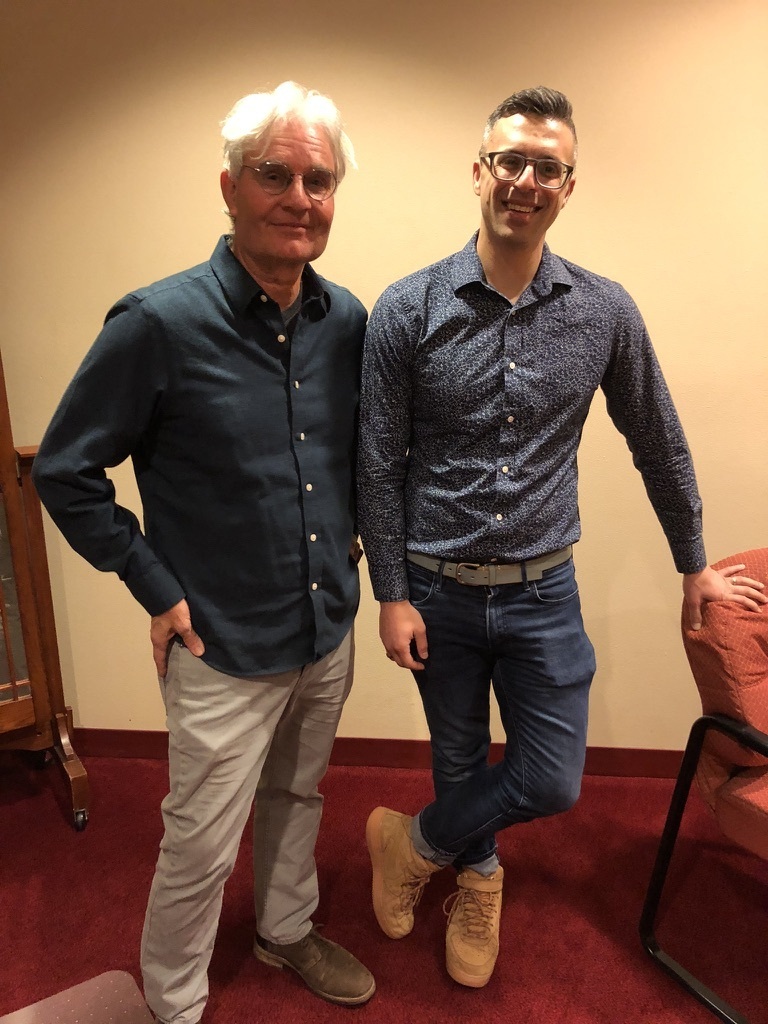
SP: But they tend not to have as big a platform as you do.
EK: That’s probably fair. I don’t think of the show as having a niche or a beat in the way that other things I’ve done had. When I ran Wonkblog at the Washington Post, that was about trying to do the very best policy coverage anybody, anywhere was doing.
The interview show I do, “The Ezra Klein Show” — there’s an authenticity to it. The reason it has my name in the title is because its connective tissue is what I’m actually thinking about and interested in. And it took me a very long time to trust that. I felt that I should be covering what everybody in the news was covering, and that there was a kind of necessity of working with what people expected to see on the show.
SP: I’m struck, for instance, by how often you talk about being a father of young kids.
EK: It’s a thing I’m going through. It’s on my mind. I believe podcasts to be distinctive as a medium in how much they prize authenticity. That’s particularly true for an interview show. It’s easy to think about the interview show as about the guest, but the truth is, the only person there every episode is the host. So if people are coming back, they’re coming back because of the host. They either like it or they don’t. Whatever they like about you is going to be real to you. And I’ve tried to be open to that.
You know, I was running news organizations in the age of highly algorithmic media, and I think social media and algorithmic media made a lot of us more of the same. You might expect that as we would become so competitive with each other online, we would become more distinct. But we were all on Twitter together, we’re all on Facebook together, and we could see what was popping on social media. What we covered became more homogenous. So one of the personal missions I had for the show was for it to be more idiosyncratic, to be more personal.
SP: If you think about your favorite podcast episodes — say, the top 10 percent of the interviews you do — can you generalize what makes those exceptional interviews? Is it the guest or the particular interaction you have with the guest?
EK: Something happens in the room that did not happen before we came into the room. Surprise.
And something catalytic, a connection in actual conversation. There’s a big difference, as I’m sure you feel, between an interview and a conversation. There’s a difference between what you knew they walked into the room with and going somewhere new together. So the best shows for me have that quality.
Then there are different kinds of shows that I really prize. What I love about some of the novelists and poets I’ve had on, like Marilynne Robinson or Richard Powers or George Saunders or Jane Hirshfield, is there will often be a beauty to listening to them speak.
SP: Have there been interviews that make you uncomfortable? Someone you really disagree with or who’s just saying stuff that almost makes your skin crawl?
EK: I’ve had people on who I really disagree with. I haven’t had anybody on who I didn’t think it was valuable to try to understand what they were saying. And I work hard —both in the way I approach interviews and in the way I try to frame them for the audience — to try to create space in which those ideas can be heard.
I think the closest thing to what you’re talking about are interviews I did during that first run of episodes I did around Gaza.
“Opinion has to be earned, and I think of myself as a reporter before I’m a writer of opinion.”
Ezra Klein
SP: You had some people defending Hamas, or at least trying to see things from their perspective.
EK: Yeah. Those interviews — both the apologists for the Israeli and the Hamas sides — I found tough, because I’m not where either of those parties is. And there was so much grief in those interviews, so much pain. But I understood where both of those people were coming from.
I think it would be hard to do an interview where I couldn’t empathically find myself in the other person. I’m trying to understand tendencies in the world that I feel are important and that, to some degree, I respect. So that can be tough, right? I mean, I’m quite pro-choice myself. I’ve had very pro-life people on the show. But that’s a tendency I respect.
SP: You have an interesting position. As a columnist, you are a pundit. You’re also a journalist. Is there a clear line between those two roles for you?
EK: I think if you are a pundit who is not a journalist, you are a bad pundit. Opinion has to be earned, and I think of myself as a reporter before I’m a writer of opinion. I try to hold a reasonable bar for myself on when I’ve earned an opinion, and most of my work is quite heavily researched or reported. I’m not that interested in just raw opinion, which I think is oversupplied in the modern digital environment.
SP: That suggests there are some subjects that you’ve reported on a lot, like Gaza and Israel, where you’re more comfortable saying where you stand on those issues.
EK: I’ve written only one piece on Gaza and Israel. And that was sort of a piece about generational politics in the U.S.
I don’t feel comfortable enough to write about that issue. I don’t think I am expert enough on it. I don’t think my voice is valuable.
On other things, I do. I write a huge amount about permitting reform in the United States. I write about politics all the time. If you compare the column to the podcast, the column is where I tell you what I think. It is a place where I try to persuade you of something that’s interesting. The podcast is much more exploratory.

